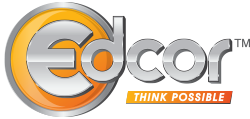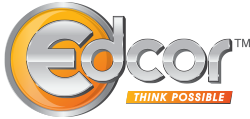
‘Learn from yesterday, live for today, hope for tomorrow.’ – Albert Einstein
There are but a few notable trends in the world of work that have led to drastic and crucial changes in the workforce globally, determining how effective organizations remain. To name a few, the invention of the internet, social media marketing, rapid digitalization during the pandemic, and now the advent of Gen-AI (generative artificial intelligence) and other AI-driven tools that augment human capital to enhance its efficiency. History holds testimony to the fact that organizations that were quick to adapt and upskill survived and gained a competitive advantage, whereas those that did not, perished.
Whether you like it or not, we are advancing into the era of information technology and AI with the development of advanced large language models (LLMs) by organizations like Google, OpenAI, Anthropic, Meta, and others. According to research by McKinsey, the long-term potential for AI in corporate use cases could add up to $4.4 trillion in productivity growth. Consequently, organizations today face a very real and critical challenge of upskilling/reskilling their employees, especially those whose roles may become obsolete soon. This is going to determine how competitive organizations remain and will reflect heavily on their brand perception and brand value in the long term.
Data from the World Economic Forum’s The Future of Jobs Report 2025 highlights that 92 million jobs are expected to be displaced by the year 2030, and leaders could plan for the projected 170 million new ones and the new skills that will be required to fulfill those jobs.
Further, the report highlights that
- Expansion in digital access is expected to be the most transformative trend with 60% of employers expecting it to transform their business by 2030.
- Other transformative trends include advancements in technologies such as AI and information processing (86%); robotics and automation (58%); and energy generation, storage, and distribution owing to the green transition (41%).
These trends are likely to have varying effects on employment, driving both the fastest-growing and fastest-declining roles. This will increase the demand for technology-related skills, such as AI and big data, networks and cybersecurity, and technological literacy, which are projected to be the top three fastest-growing skills. Unsurprisingly, these will be priorities for upskilling and workforce management.
Continuous learning and reskilling programs are equally crucial. The report shows that 85% of employers plan to prioritize upskilling their workforce, with a significant portion expecting to transition staff from declining to growing roles. Moreover, tailored workforce management strategies gain importance to address the impact of aging and declining working-age populations in higher-income economies and expanding working-age populations in lower-income economies.
This is the time for organizational leaders to make commitments to upskilling and AI-driven transformations to address employee needs and focus on human-centric development. To thrive in this ambitious era, both leaders and employees must ask themselves critical questions. How can leaders define their strategic priorities and guide their companies effectively amid disruption? How can employees prepare for the AI transition in their workplaces?
Here’s what we can do as your true HR partner
With our extensive network of school partners, Edcor can play a pivotal role in providing you with Educational solutions that would facilitate upskilling and reskilling efforts. These offerings are vetted, from accredited institutions of high repute, and many fit seamlessly in your Tuition benefits policy further streamlining the ease of access and use.
- Customized Learning Programs: We can help develop tailored learning programs that address specific skill gaps within organizations through our Critical Pathway program. The programs will be delivered by partnering schools of your choice. Our school partners ensure these programs are aligned with current industry needs and future trends.
- Flexible Learning Solutions: Offering flexible, on-demand learning solutions allows employees to upskill at their own pace. This can include short-term learning solutions, online courses, workshops, and certification programs that are accessible asynchronously.
- Integration with HR Strategies: By working closely with your HR department, Edcor can ensure that learning programs are integrated into broader workforce management strategies. This alignment helps in tracking progress and measuring the impact of upskilling initiatives.
- Support for Career Transitions: Edcor Academic Advising can offer academic and career counseling and support to help your employees choose the right programs to transition to new roles based on their career goals. This includes identifying transferable skills and providing guidance on career pathways.
By focusing on these priorities and leveraging the knowledge and expertise of Edcor and its school network partners, your organization can effectively navigate the challenges posed by AI and ensure your workforce remains competitive and resilient. Feel free to reach out to us for more information at solutions@edcor.com.

Edcor is a woman-owned business and is the benchmark in education benefits administration. For 40+ years, our customized service and solutions have allowed Fortune 500 Clients to use education benefits programs for employee recruiting, retention, and development. Please feel free to reach out to us!
By Spardha Khera, Edcor



